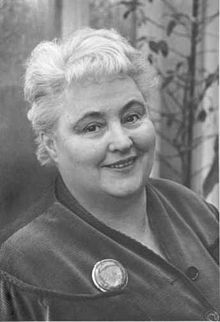About
the author

Margery Allingham (1904-1966) is ranked among the most distinguished and beloved British crime writers and is often cited as a key influence on modern female writers including P.D James, Ruth Rendell, A.S. Byatt and J.K. Rowling. Allingham is famed for her serial detective Albert Campion, part-detective, part-adventurer, who appears in 19 novels and around 40 short stories set between 1929 and 1968. She also wrote 10 standalone novels, three entertaining thrillers under the pseudonym Maxwell March, and 9 collections of short stories.
Allingham was born in Ealing, London in 1904 into a family immersed in literature, who had been writers for several generations. Shortly after her birth her family moved to Layer Breton, near Colchester, and she was to spend the greater part of her life in this area of Essex. She was encouraged to write by her father and by the age of thirteen had a story published in her aunt’s magazine called Mother and Home.
She attended the Perse School, Cambridge, where she wrote and produced a costume play. She left at sixteen to attend the School of Drama and Speech Training at the Polytechnic in Regent Street. Here, at the age of 17, she wrote and produced a heroic verse drama “Dido and Aeneas”.
In 1921 she met Philip Youngman Carter, when he came to London as an art student, and of whom she had heard since childhood from a mutual courtesy aunt. Her verse play “Dido and Aeneas” was performed at St. George’s Hall and the Cripplegate Theatre; Margery played the leading role, and the scenery was designed by Philip Youngman Carter. They married in 1927 and lived in a tiny flat in Holborn. During this time her first three Campion books were written – The Crime at Black Dudley (1929), Mystery Mile (1930), and Look to the Lady (1931).
In 1934 Margery and Philip bought D’Arcy House, Tolleshunt D’Arcy (near Maldon, Essex), which was to be their permanent home for the rest of her life. Most of the war years were spent here and a vivid account of her life at this time is to be found in her book The Oaken Heart, published in 1941.
The White Cottage Mystery was her first essay in detection, written as a serial for the Daily Express in 1927 and published as a book by Jarrolds a year later. It was an auspicious debut, confident in narrative, effective as a mystery, and with a remarkably bold conclusion. The victim is a sadistic brute whose death is investigated by an elderly Scotland Yard Inspector called W.T. Challoner. His son is at hand when the corpse is discovered, and when the trail leads to France, they follow it together. At the end W.T. throws up the case, revealing the truth and the clue that led to it only after seven years have passed.
The following year Margery introduced her popular private detective Albert Campion in The Crime at Black Dudley, who was to become the hallmark of her writing.
“One of the finest golden age crime novelists."
– The Sunday Telegraph
Allingham’s fascination with both London and the English countryside was enduring, and she is equally comfortable drawing on both settings in her work. Allingham was a brilliant and shameless eavesdropper and observer wherever she found herself: in shops, on public transport and on the street. She was a large, friendly woman who was notoriously easy to talk to, so people gravitated towards her and spoke with a surprising lack of inhibition. In this way, she developed a particularly good ear for the quirks of individual speech and a nice line in colloquialisms.
Margery Allingham passed away on 30th June, 1966.
"Miss Allingham has a strong, well controlled sense of humour, a power of suggesting character with a few touches and an excellent English style. She has a sense of the fantastic, and is never dull."
– Times Literary Supplement



